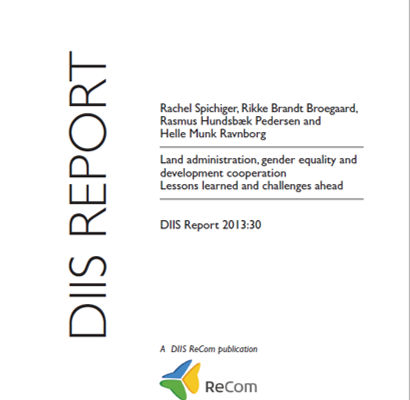Most land reforms seek to enhance tenure security, encourage investments and thus promote economic growth. In addition, recent land reforms increasingly also attempt to secure women’s and other vulnerable groups’ access to land. This DIIS Report examines the role of development cooperation in land reforms and the extent to which donor organisations have addressed concerns related to gen- der equality.
The report reviews the reforms in fifteen countries in sub-Saharan Africa, Latin America and Asia, with a focus on Ghana, Tanzania, Uganda, Zambia and Nicaragua. Donor organisations have played an important role in land law reforms but also in related legal reforms such as succession law or marriage law, which have an important impact on women’s access to and ownership of land. Legislation up- holding gender equality is now present, albeit in different degrees, in most of the countries examined. However, the implementation of these legislative frameworks often does not follow suit, and women still face discrimination, in part due to social and cultural barriers and the inaccessibility of institutions able to support them.
Moreover, gender concerns are also increasingly ‘evaporating’ in development cooperation policies. This is illustrated by the limited funding allocated to gender issues outside the ‘soft’ sectors of health and education and the weak implementation of gender mainstreaming in policies. The current inadequacy of gender-disaggregated data both in development cooperation and in national statistics e.g. on issues related to land tenure hampers efforts to effectively address issues related to gender equality and should therefore be corrected.
Authors: Rachel Spichiger, Rikke Brandt Broegaard, Rasmus Hundsbæk Pedersen and Helle Munk Ravnborg
Contact address: rachel.spichiger@gmail.com
Institution: DIIS – DANISH INSTITUTE FOR INTERNATIONAL STUDIES
Twitter name of the institution: @diisdk
Twitter link: https://x.com/diisdk
Available downloads:


